Breaking
- MENU
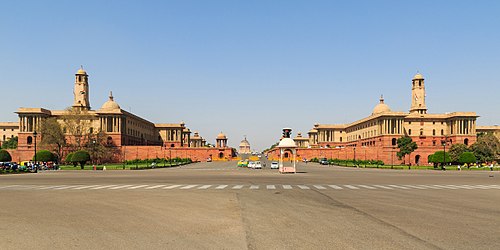
BILATERAL ISSUES
ISRAEL
Experts from India and Israel suggested expanding scope of India-Israel Industrial R&D & Technological Innovation Fund (I4F), New Delhi, 19 January 2022.
Experts from India and Israel deliberated on widening the scope of India-Israel Industrial R&D and Technological Innovation Fund (I4F) at its 8th Governing Body meeting. They approved 3 joint R&D projects worth 5.5 million $ and suggested measures to create a broader India-Israel collaborative ecosystem.
The I4F programme has a lot of potentials. This board meeting will give us new thoughts, new directions on how to go forward,” said Dr. S Chandrasekhar, Secretary, DST & India Co-Chair, acknowledging the contribution made by Israel to S&T.
“So far, the priority areas have been Agriculture, Security and other important areas. There is further scope of increasing the quantum of projects received, which calls for the need to conduct more online meetings amongst the startup eco-system of Israel and India.”
He mentioned that 16th January has been announced as ‘Innovation Startup Day’ by Honourable PM of India, which is a big beginning for India. “Given that this is the 50th year of operations of DST, it will be a great year with more and more Industries coming forward,” he added.
The discussions took place in virtual mode on 18th January 2022 in the presence of officials from the Department of Science & Technology (DST), Govt of India, Israel Innovation Authority (IIA), GITA and various Industries partners.
Dr. Amiram Appelbaum, Co-Chair, Israel and Chairman of the Board, IIA, said that despite the difficult times of the pandemic, it is critical to continue the efforts of collaboration. “I4F is one of the examples of collaborations which we want to carry forward. We look forward to go through interesting applications of projects submitted in this programme,” he stressed.
The governing body ratified the Minutes of Seventh Governing Board Meeting, which was followed by approval to 3 joint R&D projects with an overall budget of 5.4 million $. The projects were ‘Centrally Monitored IoT Nanosensors for Molecular Diagnostics in Healthcare and Screening Applications’, ‘NoMoreMos- a mosquito control biological solution’ and ‘IoT enabled satellite communication for real-time collection of agriculture and environment data across India’.
The members further discussed the status of ongoing projects under the I4F since 2018. Israel side introduced the new I4F website and matchmaking platform developed as a measure to increase the popularity of the joint programme and presented a list of programmes planned for 2022. The members mutually decided on a strategy for the new phase of I4F 2.0, which included widening the scope of the fund by determining technical feasibility and market acceptability of new products or technologies, co-developing products or technologies for commercialization, co-testbed products or technologies for commercialization in R&D and pilot areas. It also included co-developing disruptive technologies in strategic sectors together with research performers involving academia as well. The members also suggested the need to focus on Partnership Development Activities like more business activities with Indian and Israeli companies and startups through series of online events, follow up B2B meetings.
Mr. Vishvajit Sahay Additional Secretary & Financial Adviser DST, Mr S Gopalakrishnan Chairman, Axilor Ventures & Co-Founder, Infosys Mr. R. Ramanan Former Mission Director & Additional Secretary, Atal Innovation Mission, NITI Aayog, Government of India, Mr. Dror Bin, CEO, Israel Innovation Authority, Israel, Mr. S K Varshney Adviser & Head, International Cooperation (Bilateral) Division, DST were among the members present in the meeting.
India-Israel Industrial R&D and Technological Innovation Fund (I4F) fund is a cooperation between the Department of Science and Technology (DST), Government of India, and the Israel Innovation Authority, Government of Israel to promote, facilitate and support joint industrial R&D projects between companies from India and Israel to address the challenges in the agreed ‘Focus Sectors’. I4F is aimed to promote, facilitate and support joint industrial R&D between India & Israel, which would lead to the co-development and commercialization of innovative technologies benefiting both countries. Global Innovation & Technology Alliance (GITA) is appointed to implement the I4F program in India, while Israel Innovation Authority is the implementing agency in Israel. Source: Press Information Bureau (PIB).
Launch of Special Logo to Mark 30th Anniversary of: Establishment of Diplomatic Relations between Israel and India, New Delhi, 24 January 2022.
Israel and India are proud to launch a commemorative logo to mark the 30th anniversary of the establishment of diplomatic ties between the two countries.
The logo features the Star of David and the Ashoka Chakra- the two symbols that adorn the national flags of both countries- and forms the numeral 30 depicting the 30th anniversary of bilateral relations. This special logo symbolises the strong friendship, love and admiration that exists between the people of Israel and the people of India. It also depicts the growing strategic partnership between the two sides.
The logo was unveiled virtually at an online event in the presence of Ambassador of Israel to India H.E. Naor Gilon and Ambassador of India to Israel H.E. Sanjeev Singla. Other senior diplomats from both countries also took part in the event.
On this special occasion, Ambassador Naor Gilon said, “We are very happy to launch a special logo to celebrate the 30 years of the close friendship between the people of our two ancient civilizations. This is an important occasion to reflect on our mutual successes as well as a good opportunity to look ahead and shape the next 30 years of our relations. I am sure that our close existing cooperation in different fields will only continue to grow and flourish in the coming years.”
Ambassador Sanjeev Singla said, “We are proud to mark the 30th anniversary of our bilateral relations and look forward to using the special logo throughout the year to celebrate this special milestone. India and Israel are two ancient people, proud of their cultural heritage, and two vibrant democracies, eager to grasp the future. Together we can shape a better future for India, Israel, and the world.”
To create the 30th-anniversary logo, both countries launched a logo design contest last year for students of prominent design colleges in Israel and India. Entries were invited from Holon Institute of Technology, Israel and National Institute of Design, India. Many Israeli and Indian students participated in this contest.
The winning design created by an Indian student, Mr. Nikhil Kumar Rai, was chosen through a joint decision of the Embassies and Consulates from both countries. It was selected as the official logo for the 30th anniversary of Israel- India diplomatic relations.
Israel and India established diplomatic relations on 29 January 1992. Since then, the bilateral relations between both countries have developed into a multifaceted strategic partnership.
Today, Israel and India share an intimately close and special relationship, which encompasses virtually every field of human endeavour: health and innovation, agriculture and water, trade and economic activities, science and technology, research and development, defence and homeland security, art and culture, tourism and space.
The 30th anniversary of relations between Israel and India will be marked throughout the year with an elaborate array of cultural events. We stay committed to building upon the remarkable achievements of the last three decades, to further develop this Growing Partnership in the decades to come, for the benefit of both nations. Source: Embassy of India, Tel Aviv.
English translation of Prime Minister's statement on 30 years of establishment of formal Diplomatic relationship between India and Israel, New Delhi, 29 January 2022.
Greetings from India to all Israeli friends and Shalom. Today is a special day in our relationship. 30 years ago, on this very day, full diplomatic relations were established between us.
A new chapter began between the two countries. Even though this chapter was new, the history of both our countries is very old. There has been close relationship between our peoples for centuries.
As is the nature of India, for hundreds of years our Jewish community has lived and flourished in a harmonious environment in Indian society without any discrimination. It has made significant contributions to our development journey.
Today, when significant changes are taking place all over the world, the importance of India-Israel relations has increased even further. And what better opportunity to set new goals for mutual cooperation – when India is celebrating the 75th anniversary of its independence this year, when Israel will celebrate the 75th anniversary of its independence next year and when both the countries are celebrating the 30th anniversary of their diplomatic relations.
On this important milestone of 30 years, I congratulate you all again. I am sure that India-Israel friendship will continue to set new records of mutual cooperation in the coming decades.
Thank you, Toda Raba.
DISCLAIMER: This is the approximate translation of Prime Minister’s remarks. Original remarks were delivered in Hindi. Source: Ministry of External Affairs (MEA).
UAE
Telephonic conversation between External Affairs Minister Dr. S. Jaishankar and Foreign Minister of UAE HH Sheikh Abdullah bin Zayed Al Nahyan, New Delhi, 18 January 2022.
External Affairs Minister Dr. S. Jaishankar today had a telephonic conversation with the Foreign Minister of UAE HH Sheikh Abdullah bin Zayed Al Nahyan. They discussed the terror attack on UAE yesterday that killed two Indian nationals.
The UAE Foreign Minister shared the details of the attack with EAM. He conveyed the deepest condolences of the UAE Government on the death of two Indians. He assured that the UAE Government would extend the fullest support to the families of the deceased. His authorities are in continuous touch with the Indian Embassy in that regard.
On his part, EAM condemned the terror attack in the strongest terms. He emphasized that in this day and age, such an attack on innocent civilians was completely unacceptable and against all civilized norms. EAM appreciated the immediate assistance provided by UAE authorities to the Embassy in responding to this tragic situation.
EAM conveyed India’s strong solidarity with UAE in the face of such an attack. Given its principled position against terrorism, India will stand with UAE in international forums on this issue.
The Ministry of External Affairs is in contact with the Indian Embassy in Abu Dhabi regarding the return to India of the mortal remains of the deceased. The Embassy is coordinating with the families. They have also rendered all necessary assistance to those who sustained injuries. Source: Ministry of External Affairs (MEA).
PERMANENT MISSION OF INDIA TO THE UN
UNSC briefing on Syria (Chemical Weapons), Statement by Ambassador T.S. Tirumurti, Permanent Representative of India to the United Nations, New York, 05 January 2022.
Madam President,
At the outset, allow me to extend my felicitations to you and extend our full support to your Presidency. I also welcome our five new colleagues to the Council and thank the five outgoing colleagues for their contribution. We would like to thank Under Secretary General and High Representative for Disarmament Affairs, Ms. Izumi Nakamitsu for her update.
2. We have taken note of the contents of the latest 99th monthly report by DG-OPCW submitted to this Council pursuant to UNSCR 2118. We look forward to the report on the Secretariat’s latest (eighth) round of inspections of facilities of the Scientific Studies and Research Centre (SSRC). We have noted the submission by Syrian Arab Republic on 16th December of its 97th monthly report detailing activities undertaken to implement its obligations under the Chemical Weapons Convention (CWC). We have also noted that the Tripartite Agreement between the Syrian Arab Republic, UNOPS (United Nations Office for Project Services) and the OPCW that facilitates the Secretariat’s activities in Syria, has been extended for a further period of six months.
Madam President,
3. We encourage continued engagement between Syria and the Technical Secretariat of the OPCW to address and resolve all relevant issues relating to chemical weapons.
4. India’s position on issues related to Syria acceding to the Chemical Weapons Convention is well known. It is our principled stand that CWC is a unique, non-discriminatory disarmament instrument for elimination of an entire category of weapons of mass destruction. India attaches high importance to the CWC, and stands for its full, effective and non-discriminatory implementation. We support the collective efforts by all the parties to ensure that the credibility and integrity of this Convention is maintained to the fullest.
5. India is against the use of chemical weapons by anybody, anywhere, at any time and under any circumstances. India has consistently maintained that any investigation into the use of chemical weapons must be impartial, credible, and objective, following scrupulously the provisions and procedures embedded in the Convention, and in conformity with the delicate balance of power and responsibility enshrined under it, to establish facts and reach evidence-based conclusions. This should be adhered to.
6. India has also been repeatedly cautioning against the possibility of terrorist entities and individuals gaining access to chemical weapons, including in the region. The reports of UNITAD have also referred to the repeated deployments of chemical weapons by UN proscribed terrorist groups and those affiliated to ISIL against civilian populations between 2014 and 2016. ISIL remains active in Syria, where the group is seeking to rebuild its combat capabilities. Therefore, allegations of the use of chemical weapons need to be dealt with utmost attention.
7. India continues to believe that progress on other tracks could help with potential forward movement in respect of the political process in Syria as advocated by UNSCR 2254.
I thank you, Madam President. Source: Permanent Mission of India to the UN.
UNSC Briefing on Yemen, Statement by Ambassador T.S. Tirumurti, Permanent Representative of India to the United Nations, New York, 12 January 2022.
Thank you, Madam President. I thank Special Envoy Hans Grundberg and Acting Assistant-Secretary General Ramesh Rajasingham for their detailed briefings. I also thank Ms. Al-Aghbary for her briefing. I also welcome the Permanent Representative of Yemen to this meeting.
2. We are extremely concerned by the continued intensification of military operations in Yemen. The fierce clashes in Sana’a, Ma’rib and Shabwa in the last few weeks are jeopardizing the prospects of peace. The seizure and detention of vessel “Rawabi” off the coast of Hudaydah earlier this month has further exacerbated the ongoing tensions. We express our grave concern at this act, which has the potential to deeply compromise the maritime security in the region. Seven Indian nationals are among the crew members on board the ship and we are deeply concerned about their safety and well-being. We urge the Houthis to immediately release the crew members and the vessel. The Houthis also bear the responsibility of ensuring the safety of the crew members till their release.
3. I call upon all parties to the conflict to immediately cease fighting, de-escalate the situation and engage unconditionally with Special Envoy Hans Grundberg in his efforts to commence discussions towards comprehensively ending the conflict in Yemen.
4. The conflict continues to have a devastating impact on the people of Yemen, especially on women and children, and extends well beyond the tragic loss of human life. It has pushed millions into poverty, led to hunger and disease, disrupted education, deprived basic health and sanitation, and led to malnutrition among Yemeni children. Given the economic decline and the COVID-19 pandemic, the dire situation has been further aggravated. Sustained international donor assistance and concrete short and long-term economic measures, as identified in the UN’s economic framework for Yemen, are necessary to overcome the economic and humanitarian crisis in the country.
5. The brief suspension of humanitarian flights into and out of Sana’a airport in December is a matter of concern. The operation of these flights is critical, not only for the movement of aid workers and the delivery of humanitarian supplies into Yemen, but also for emergency medical transfers. We call on parties to the conflict to not impose any impediments or restrictions on the movement of humanitarian aid and humanitarian personnel. We also urge them to maintain the civilian character of Sana’a airport and other critical public infrastructure in Yemen.
6. We condemn the continued cross-border attacks into Saudi Arabia targeting civilians and civilian infrastructure. All parties must uphold their obligations under international humanitarian law by ensuring that civilians and civilian infrastructure are not targeted during military operations.
7. We take note of the developments surrounding FSO SAFER, whose current condition poses a potential environmental, economic, maritime, and humanitarian threat. We hope for an early conclusion of the required agreements and arrangements.
Madam President,
8. Let me conclude by reiterating India’s call for an immediate and comprehensive ceasefire across Yemen followed by a robust and inclusive political process with involvement of Yemeni women. Such a process should also fully respect Yemen’s unity, sovereignty, independence, and territorial integrity. We believe that with effective Yemeni, regional, international and UN leadership, a lasting and inclusive political settlement in Yemen is achievable. We encourage the Special Envoy to continue his engagement with all Yemeni parties and his coordination with the countries in the region to reach a durable solution to conflict.
I thank you. Source: Permanent Mission of India to the UN.
UNSC briefing/consultation on United Nations Support Mission in Libya (UNSMIL), Statement by Ambassador T.S. Tirumurti, Permanent Representative of India to the United Nations, New York, 24 January 2022.
Madam President,
At the outset, I would like to thank the Under Secretary General (USG) Rosemary DiCarlo and Ms. Elham Saudi for their briefing.
We regret to note that the Presidential and Parliamentary elections could not be held as scheduled on 24 December 2021. As an objective endorsed by the Libyan people themselves, this could have been an important milestone in the political process, carrying forward the momentum generated by signing of Ceasefire Agreement in October 2020. We hope that all issues related to the elections and candidature will be resolved in time and the elections will be conducted smoothly. It is important for the Security Council to support the democratic aspirations of the Libyan people.
At the same time, we also note from the briefing that challenges still remain. The involvement of external forces in the internal affairs of Libya has negatively impacted the progress on the political track; and there has been a resurgence in terrorist activity. Continued violations of arms embargo are also equally alarming.
Madam President,
As Libya embarks upon its journey towards peace and stability, it is incumbent upon the international community to continue to provide the necessary support so that the political progress achieved in the country does not whittle away. In this regard, I would like to make the following suggestions:
One, the most important priority for Libya is holding of elections in a free, fair, inclusive and credible manner. A unified call from the Security Council would support this endeavour. We hope that the House of Representatives of Libya will come to an agreement soon to resolve their internal issues.
Two, the sovereignty, independence, unity and territorial integrity of Libya needs to be safeguarded. The peace process must be fully Libyan-led and Libyan-owned with no imposition or external interference.
Three, the provisions of the Ceasefire Agreement and successive Security Council resolutions need to be respected. It is important that the call of the Libyan parties is honoured with regards to the full and complete withdrawal of foreign forces and mercenaries. In this context, we welcome the progress made in implementation of the Action Plan agreed by the 5+5 Joint Military Commission. The recent deportation of mercenaries from Eastern Libya is a welcome development.
Four, it is important that the international community focuses its attention on the threat of terrorism in Africa, in particular in the Sahel region. We must ensure that terrorist groups and affiliated entities are not allowed to operate unchallenged in Libya. The report of the Secretary General has highlighted the presence of training camps of the ISIL in southern Libya. It is critical for the Security Council to focus and act upon the growing threat of terrorism in Africa.
Five, we need to plan for the disarmament, demobilization and reintegration of armed groups and non-state armed actors. Libya also needs an inclusive and comprehensive national reconciliation process
Finally, the UNSMIL has played an important role in Libya and has been one of the key factors in bringing about the progress that we are witnessing now. We will work with other members of the Security Council to support the UNSMIL and its mandate renewal.
To conclude, India has traditionally enjoyed close and mutually beneficial bilateral ties with Libya and we remain committed to supporting Libya and the Libyan people in their endeavour to bring about lasting peace in the country.
I thank you, Madam President. Source: Permanent Mission of India to the UN.
UN Security Council Meeting on the ISIL attack & security situation in North-East Syria, India Statement, New York, 27 January 2022.
Madam President,
I would like to thank Under Secretary General (USG) Vladimir Voronkov for his briefing today.
2. In our remarks in the monthly meetings on political and humanitarian tracks, India has been repeatedly reiterating the looming threat posed by resurgence of terrorist groups in Syria. Sadly, the international community has been caught off guard in recognizing this imminent threat.
3. The attacks by Daesh last week in the northeast of Syria in Al Hasakah which resulted in the killing and displacement of civilians, has once again underlined our oft stated concerns. Secretary General’s reports have repeatedly mentioned about UN designated terrorist groups such as ISIL and Hayat Tahrir al-Sham, gaining in strength in Syria. This attack by Daesh is a manifestation of this trend. Iraq has also seen terrorist attacks by Daesh and affiliated groups in the recent months.
4. We strongly condemn these attacks and reiterate that global fight against terrorism cannot and should not be compromised for narrow political gains. The re-emergence of ISIL/Daesh in Syria and Iraq calls for urgent action by the international community. We reiterate that terrorists can neither be defeated by forming alliances with non-sovereign entities nor by pushing narrow political agendas. In fact, such skewed approach will be counterproductive to our collective efforts. In this regard, we need to support regional member states in their measures against terrorists and UN designated terrorist groups.
5. While we are focusing on the region of North East Syria only, the problem has now spread across the country. We call for an assessment by UN agencies to check the siphoning of humanitarian aid by terrorist groups and taking steps to counter the strengthening of their networks across Syria.
6. There have been reports of using internally displaced young boys as human shields, as well as regular reports of attempts by ISIS to recruit them. Countries of origin of these vulnerable boys and their families need to take responsibility for them and should not allow this problem to fester forever.
7. In conclusion, the expanding terrorist activities and strengthening of UN designated terrorist groups in Syria and the broader region, is a matter of critical concern and deserve serious introspection and concerted action by the international community. As Chair of Counter Terrorism Committee (CTC), India will continue to take up this issue with all stakeholders so that a zero-tolerance approach to terror and its perpetrators becomes the common call of the international community.
I thank you. Source: Permanent Mission of India to the UN.
UNSC Briefing on the situation in the Middle East (Syria), India Statement, New York, 27 January 2022.
Madam President,
I join others in thanking Assistant Secretary General Ramesh Rajasingham for his briefing today. I also thank Jan Egeland, Secretary General of the Norwegian Refugee Council for his insights.
2. The humanitarian situation in Syria has not seen any significant improvement in the recent months. More than a decade long crisis has had an immeasurable socio-economic impact on the population. Nearly 14 million people need humanitarian assistance, of which 9.8 million are being covered under various initiatives including that of the UN. In recent times, the economic situation in the country has become dire, with increasing shortfalls in essential items such as wheat and barley. Further, the prices continue to rise and removal of subsidies on fuel gas and depreciation of the Syrian pound has worsened the situation. The ongoing winter season has also compounded the miseries of people, particularly, women, children, and the elderly.
3. The fundamental reason for the aggravating humanitarian situation in Syria, is lack of progress on the political track. Yesterday, we had an opportunity to deliberate on the recent developments in the political track. In this regard, we reiterate the need for commitment by all parties, in particular the external players, to a Syrian-led and Syrian-owned UN-facilitated political process in line with UN Security Council Resolution 2254.
4. We also believe that a nation-wide comprehensive ceasefire is paramount to the interest of the Syrian people. While cross-border operations are predictable and important, they cannot continuity to exist in perpetuity. We, therefore, encourage OCHA and UN agencies to expend efforts to enhance crossline operations. In this regard, we take positive note of recent efforts on crossline operations. However, more concerted efforts are required, as we move towards the end of the one-year authorization of cross border humanitarian assistance.
5. International community, in order to help the people of Syria in their hour of need, needs to constructively look at promoting projects, which will bring much needed jobs and economic opportunities for the Syrian people and thereby help to ease shortfalls. In the face of falling production of food staples, issues related to water shortage in the region, including those brought about by actions of the upstream countries with regard to water flow in the Euphrates, the collective concerns of the Syrian people need to be treated with utmost seriousness.
6. We cannot discuss humanitarian situation in Syria in isolation, without referring to growing activities of terrorist groups such as ISIL/Daesh. The attack on a prison in in Al-Hasakeh city by ISIL/Daesh last week demonstrates the severity of the problem. The resulting hostilities have also displaced nearly 45,000 people. India has been consistently highlighting how external players have contributed to the growth of terrorist groups in Syria. The continuing neglect of this issue by the international community will cause irreparable damage to our collective fight against terrorism. The situation of Internally Displaced Persons (IDP) camps housing women and children, also continues to remain serious. We strongly condemn the killing of a humanitarian worker in the Al Hol camp earlier this month.
7. Taking into consideration the difficult socio-economic situation in Syria, which has been further compounded by the global Covid-19 pandemic and the onset of winter, there is an urgent need to scale up humanitarian assistance. In this regard, we are concerned that the humanitarian assistance to Syria actually got reduced in 2021. We urge OCHA to harmonize the data related to early recovery and resilience projects in a comprehensive manner so that a holistic view is obtained.
8. On our part, India has continued to extend developmental assistance and human resource development support to Syria through grants and lines of credits for developmental projects, supply of medicine and food, artificial limb fitment camps, a Next Generation IT center and capacity building training programs. Since the beginning of the conflict, India has always stood by the Syrian people and will continue to do so.
I thank you Madam President. Source: Permanent Mission of India to the UN.
As part of the policy, the MEI@ND standardizes spellings and date format to make the text uniformly accessible and stylistically consistent. The views expressed here are those of the author and do not necessarily reflect the views/positions of the MEI@ND. Editor, MEI@ND P R Kumaraswamy
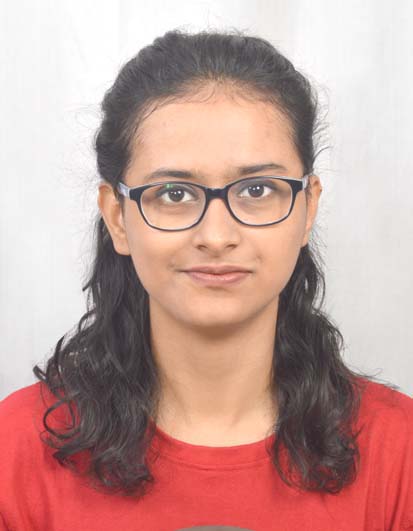
Ankita Sanyal is a doctoral candidate at Centre for West Asian Studies, Jawaharlal Nehru University, New Delhi. She worked as a summer intern at National Human Rights Commission, New Delhi in 2014 and participated in Global Initiative for Academic Networks, lecture on “Jerusalem and Abrahamic Faiths throughout the Ages” (November 2016); ICSSR-sponsored workshop on “Research Methodology Workshop in Social Sciences” (February 2019); and workshop on “Second Intensive Course on Women’s Studies in Islam and Iran” at the University of Religions and Denominations, Qom, Iran (August 2019). She currently has many publications and has presented papers in national and international conferences. She received certificate on completion of Level Two Persian Language course. Her area of interest includes minority studies, gender studies, cultural studies, education, peace and conflict studies.
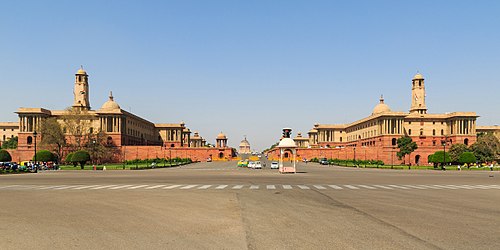
BILATERAL ISSUES BAHRAIN The CEO of LMRA highlights details on the new labour market reforms, .....
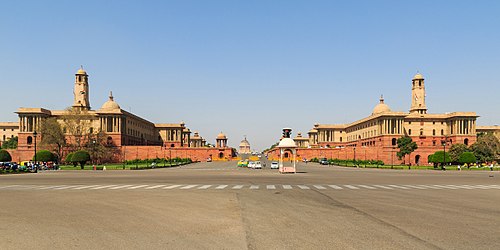
BILATERAL ISSUES EGYPT Raksha Mantri Shri Rajnath Singh to visit Egypt from September 19-20, 2.....
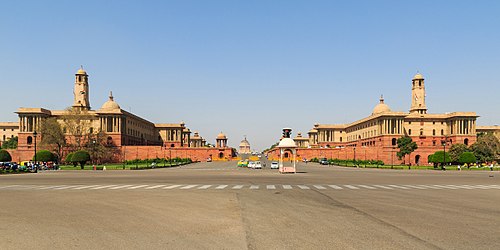
BILATERAL ISSUES IRAN Shri Sarbananda Sonowal visits Chabahar Port in Iran to Review work prog.....
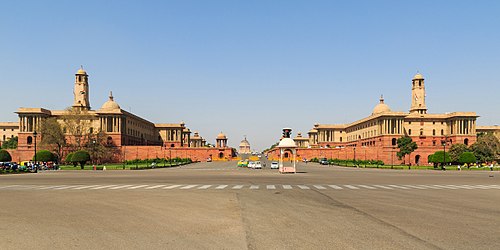
BILATERAL ISSUES BAHRAIN Deputy Chief of Naval Staff, India visits Kingdom of Bahrain, Manama,.....
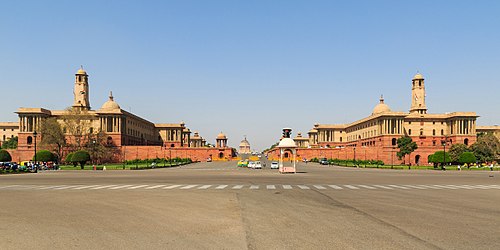
BILATERAL ISSUES BAHRAIN Buyer Seller Meet on Indian coffee between Indian exporters and Bahra.....
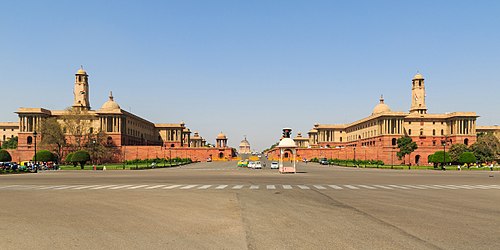
BILATERAL ISSUES BAHRAIN B2B meeting and Networking event between Bahraini & Indian IT com.....
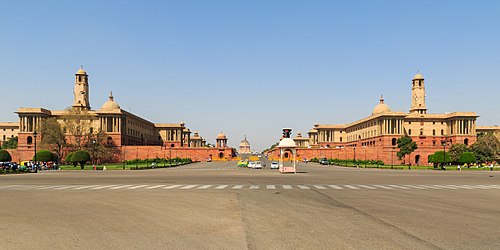
BILATERAL ISSUES OMAN Community Service Fortnight / Sewa Utsav’: ‘Celebration Thro.....
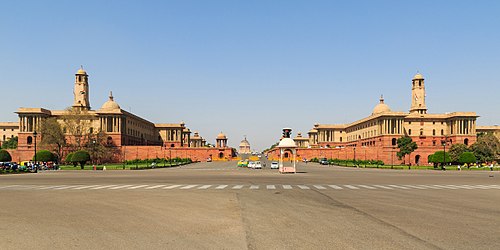
BILATERAL ISSUES BAHRAIN Virtual Buyer Seller Meet on agriculture and food products between In.....
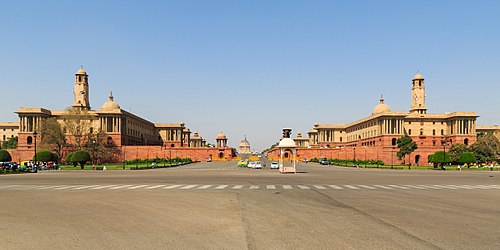
BILATERAL ISSUES BAHRAIN PM speaks on telephone with His Royal Highness Prince Salman bin Hama.....
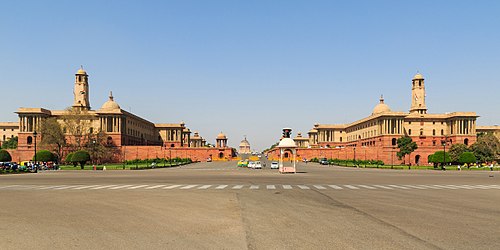
BILATERAL ISSUES BAHRAIN Press Release on virtual meeting between Minister for Education and S.....
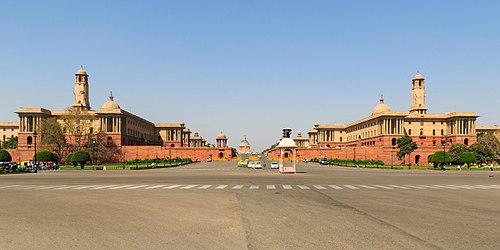
BILATERAL ISSUES BAHRAIN Ambassador’s visit to India Pavilion of Jewellery Arabia, Bahra.....
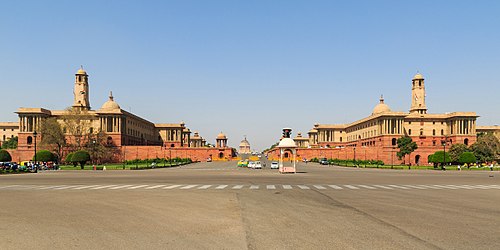
BILATERAL ISSUES BAHRAIN First consignment of GI tagged sweet dish Mihidana from West Bengal e.....
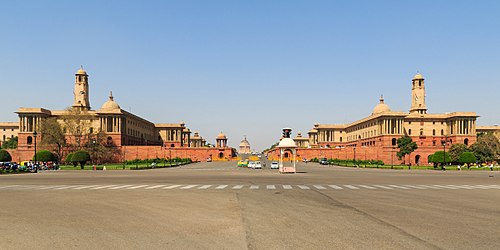
BILATERAL ISSUES ALGERIA Visit of Shri V. Muraleedharan, Minister of State for External Affair.....
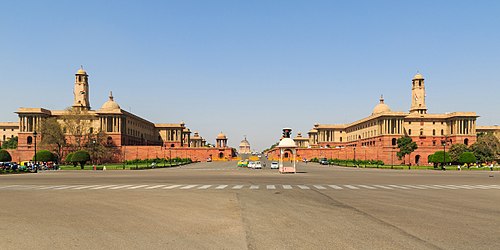
BILATERAL ISSUES ALGERIA INS TABAR undertook a bilateral Passage Exercise (PASSEX) with Algeri.....
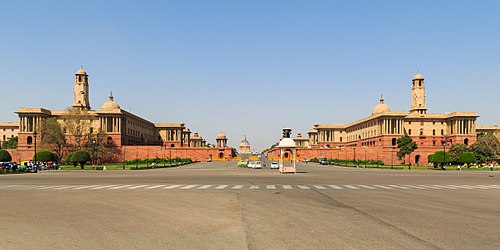
BILATERAL ISSUES BAHRAIN India expands mango export footprint to newer countries; GI certified.....
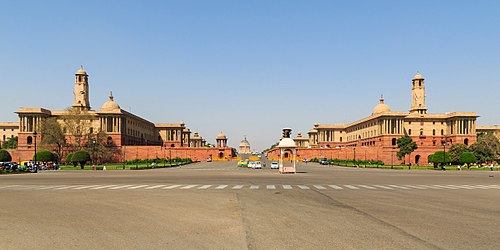
BILATERAL ISSUES ALGERIA APEDA in collaboration with Indian embassy organize virtual buyer sel.....
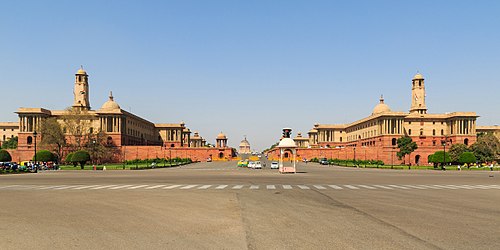
BILATERAL ISSUES EGYPT Procurement of 300,000 doses of Remdesivir from M/s EVA Pharma, Cairo, .....
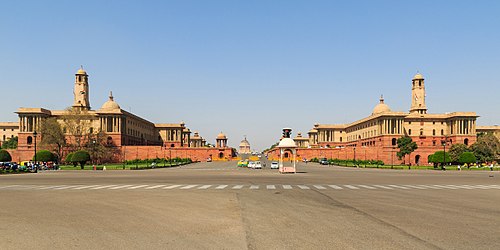
BILATERAL ISSUES BAHRAIN Third India-Bahrain High Joint Commission Meeting, New Delhi, 07 Apri.....
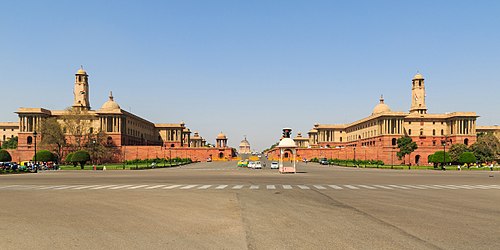
BILATERAL ISSUES BAHRAIN Indian Naval Ship Talwar’s Port Visit to Bahrain, Manama, 18 Ma.....
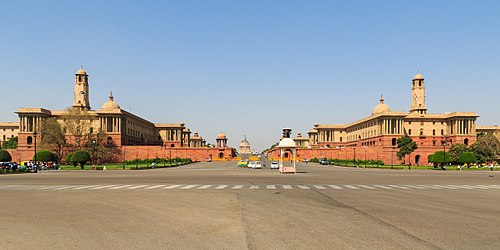
BILATERAL ISSUES IRAN Unstarred Question No.1475, Chabahar-Zaheden Railways Line, Lok Sabha, 1.....
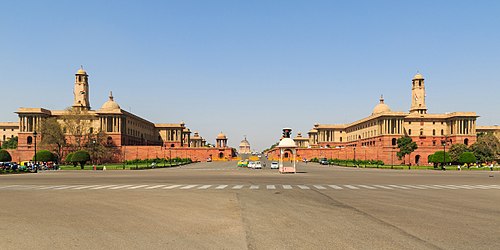
BILATERAL ISSUES IRAN Government of India strengthens cargo handling capacity of Chabahar Port.....
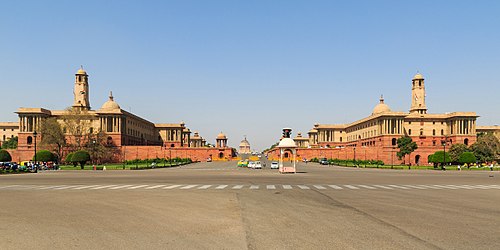
BILATERAL ISSUES BAHRAIN Warm greetings from Indian leadership on the occasion of Bahrain&rsqu.....
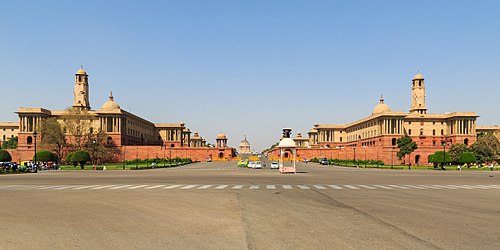
BILATERAL ISSUES BAHRAIN Prime Minister condoles the passing away of His Royal Highness Prince.....
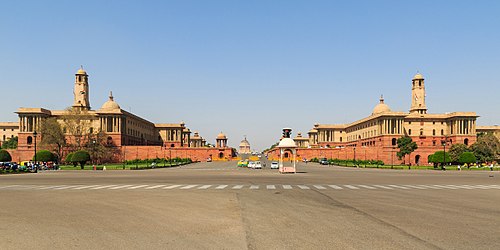
BILATERAL ISSUES BAHRAIN A B2B Webinar on Enhancing Opportunities in Pharmaceuticals and Alter.....
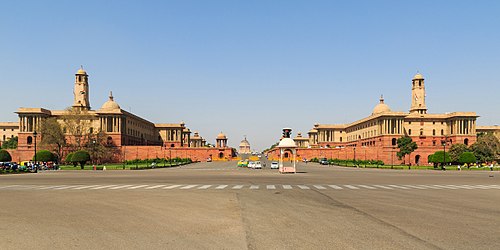
BILATERAL ISSUES IRAN Raksha Mantri Shri Rajnath Singh holds meeting with Iran's Minister .....
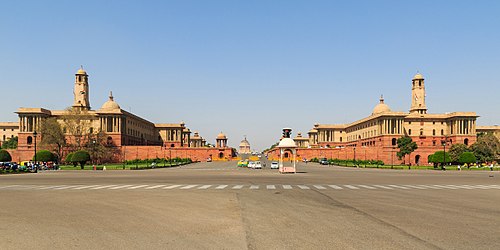
BILATERAL ISSUES ISRAEL Statement by the Official Spokesperson on the full normalisation of re.....
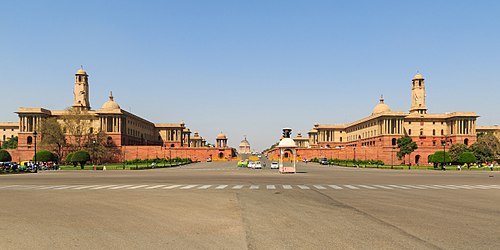
BILATERAL ISSUES ISRAEL Raksha Mantri Shri Rajnath Singh and Israeli Defence Minister telephon.....
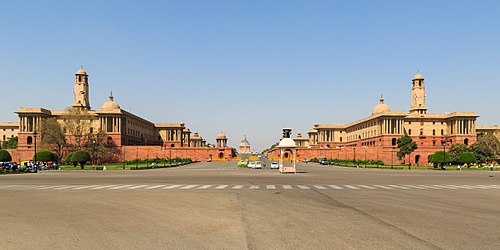
BILATERAL ISSUES IRAN Indian Navy Commences evacuation of citizens from Islamic Republic of Ir.....
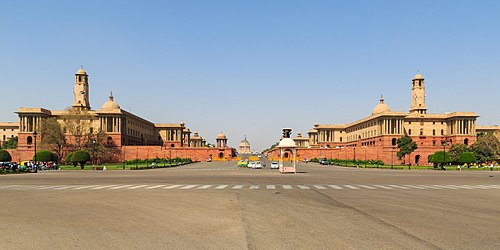
BILATERAL ISSUES EGYPT Phone call between Prime Minister Shri Narendra Modi and His Excellency.....
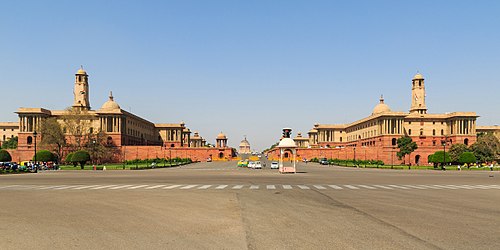
BILATERAL ISSUES BAHRAIN Telephone Conversation between PM and King of the Kingdom of Bahrain,.....
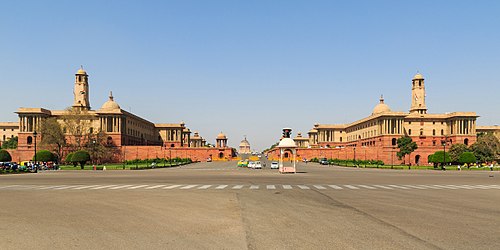
BILATERAL ISSUES IRAN IAF C-17 ‘Globemaster’ takes off for Iran, New Delhi, 9 Marc.....
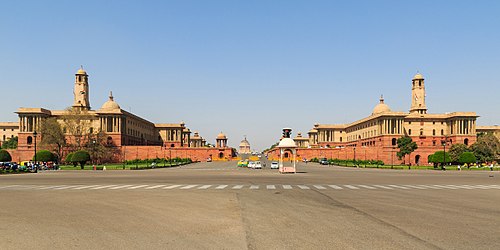
BILATERAL ISSUES IRAQ Travel Advisory for Indian Nationals travelling to Iraq, New Delhi, 19 F.....
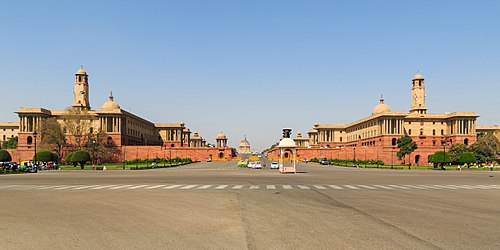
BILATERAL ISSUES EGYPT Photo exhibition on “Making of Indian Constitution and Life of Dr.....
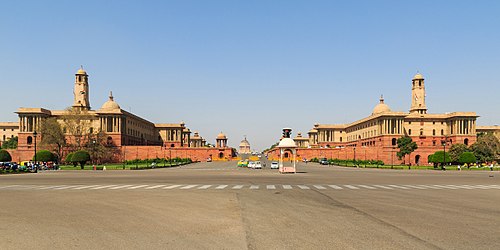
BILATERAL ISSUES EGYPT Prize Distribution Function of “Glimpses of India” Painting.....
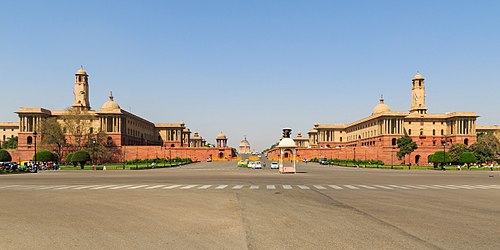
BILATERAL ISSUES EGYPT Consular Camp in Port Said on 22 November 2019, Cairo, 19 November 2019.....
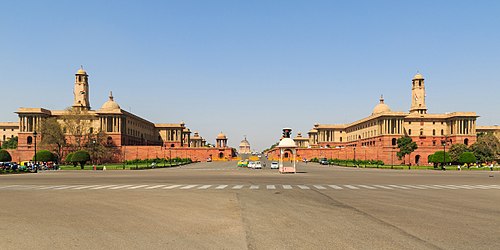
BILATERAL ISSUES JORDAN Meeting between Prime Minister and King of Jordan in Riyadh, Riyadh, 2.....
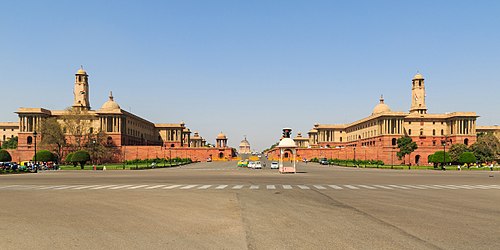
BILATERAL ISSUES a. IRAN Foreign Office Consultations between India and Iran, Tehran, 16 Septe.....
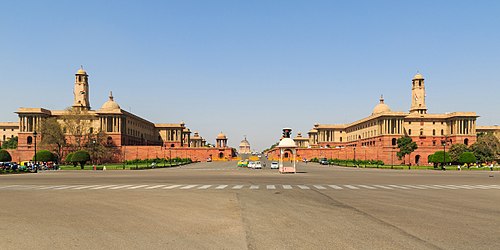
BILATERAL ISSUES a. BAHRAIN State Visits of Prime Minister to Bahrain (August 24-25, 2019), Ne.....
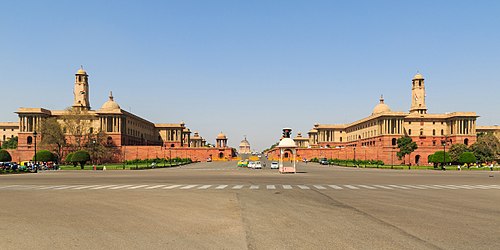
BILATERAL ISSUES BAHRAIN Cabinet approves Memorandum of Understanding between India and B.....
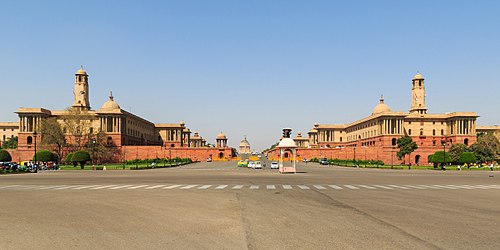
BILATERAL ISSUES IRAN UNSTARRED QUESTION No. 662 MPACT OF AMERICAN BAN ON CHABAHAR PORT, Rajya.....
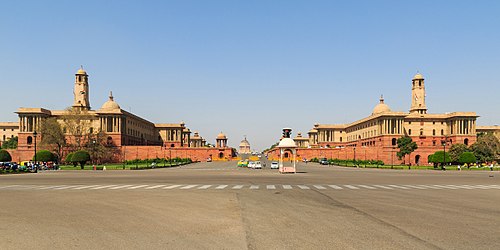
BILATERAL ISSUES IRAN 11th India Iran Joint Consular Committee Meeting (JCCM), New Delhi, 16 M.....
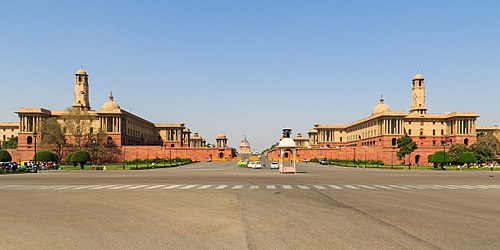
IRAN India extends relief assistance to Iran after recent floods, Tehran, 17 April 2019 In lin.....
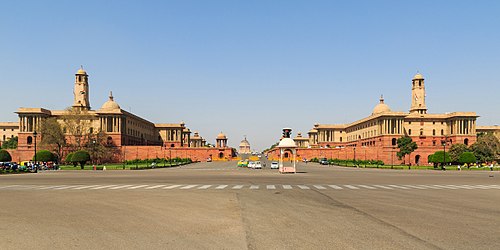
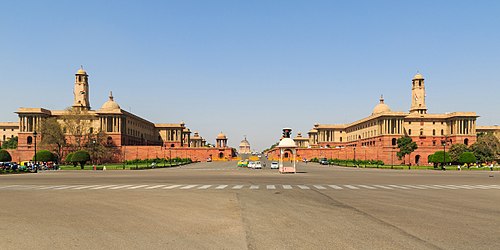
BILATERAL ISSUES EGYPT India condemns terrorist attacks in Egypt, New Delhi, 22 February 2019 .....
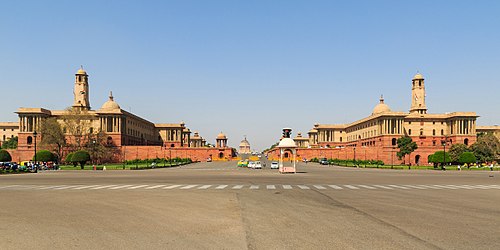
BILATERAL ISSUES ALGERIA Visit of Foreign Minister of Algeria to India (January 30-February 01.....
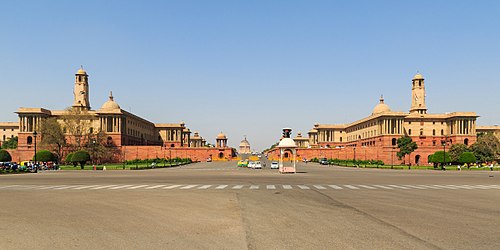
ALGERIA Cabinet approves Agreement between India and Algeria on Cooperation in the field of Space.....
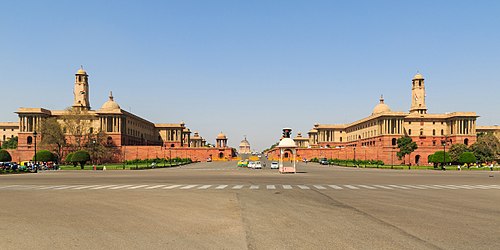
BILATERAL ISSUES IRAQ Jaipur Foot Camp in Karbala, Karbala, 21 November 2018 A 40-day Artif.....
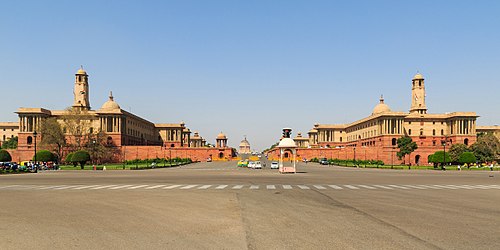
BILATERAL ISSUES KUWAIT Visit of External Affairs Minister to State of Qatar and State of Kuwa.....
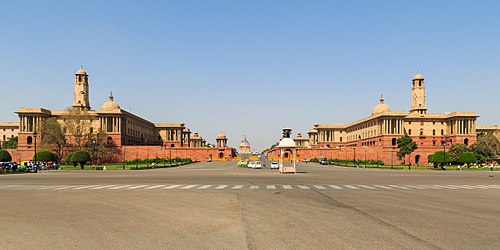
BILATERAL ISSUES EGYPT Cabinet approves MoU between India and Egypt on cooperation in the fiel.....
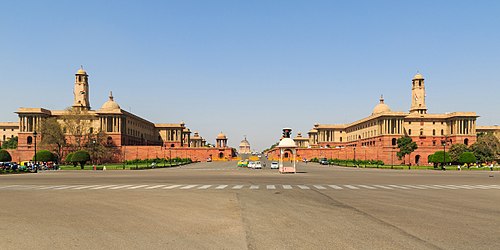
BILATERAL ISSUES BAHRAIN Question No. 3566, Unpaid Workers in Bahrain, Lok Sabha, New Delhi, 0.....
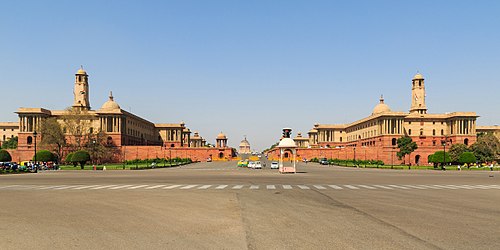
BILATERAL ISSUES BAHRAIN Visit of External Affairs Minister to Manama, Bahrain (July 14-15, 20.....
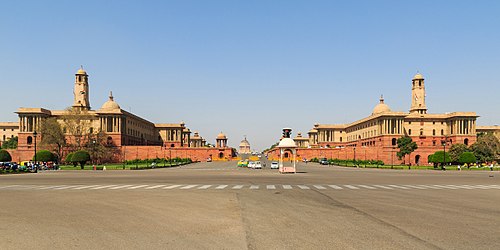
BILATERAL ISSUES BAHRAIN Cabinet approves MoU between India and Bahrain on cooperation in the .....
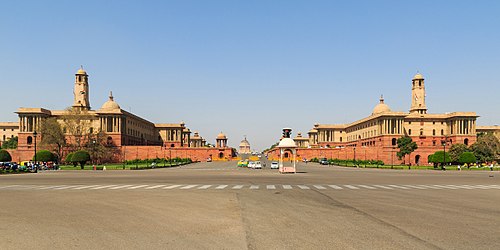
BILATERAL ISSUES IRAN External Affairs Minister’s meeting with Iranian Foreign Minister,.....
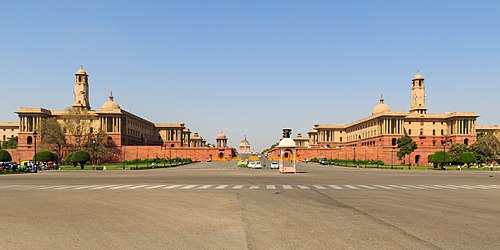
BILATERAL ISSUES IRAN Cabinet approves MoU between India and Iran on the establishment of an e.....
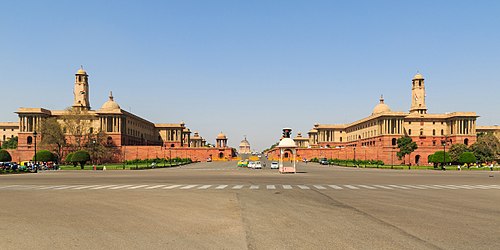
(Monthly Digest of Official Indian Statements on Middle East) BILATERAL ISSUES EGYPT Mr. Sa.....
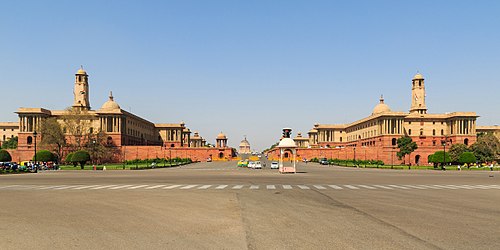
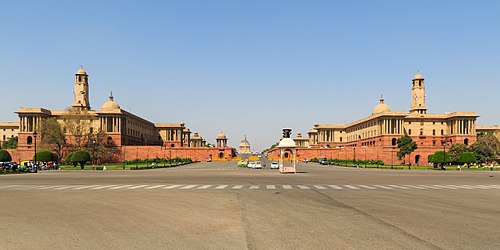
(Monthly Digest of Official Indian Statements on Middle East) BILATERAL ISSUES IRAN Launch .....
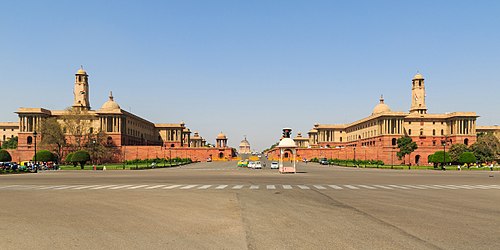
(Monthly Digest of Official Indian Statements on Middle East) BILATERAL ISSUES &.....
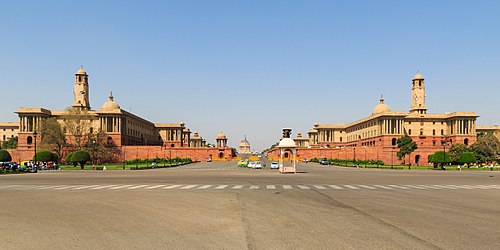
BILATERAL ISSUES a. EGYPT 1. H.E. Col. Rajyavardhan Singh Rathore, Minister of State for Youth.....
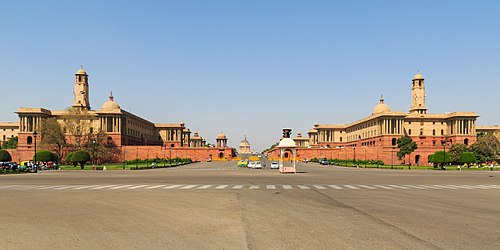
BILATERAL ISSUES a. IRAQ 1. India’s position on the Referendum held in the Kurdistan Reg.....
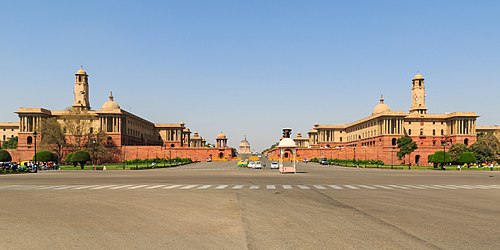
BILATERAL ISSUES IRAN 1. 6th Meeting of Joint Committee on Ports and Maritime Cooperation.....
